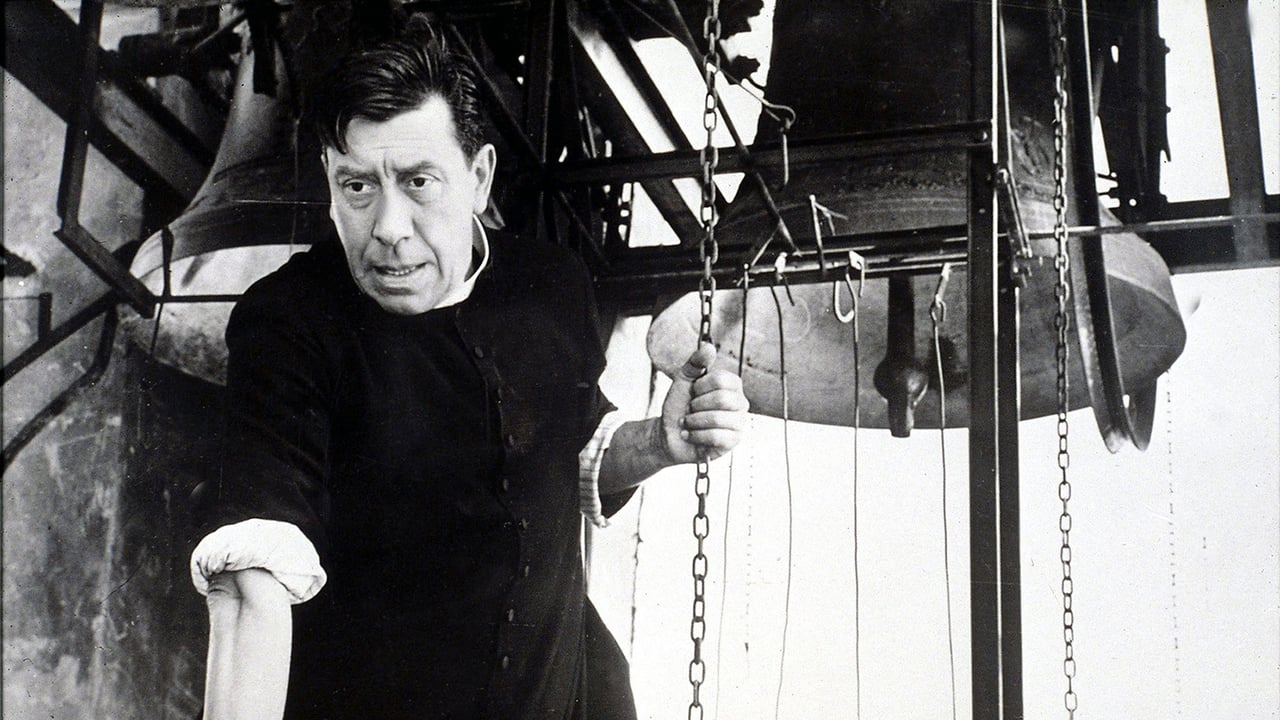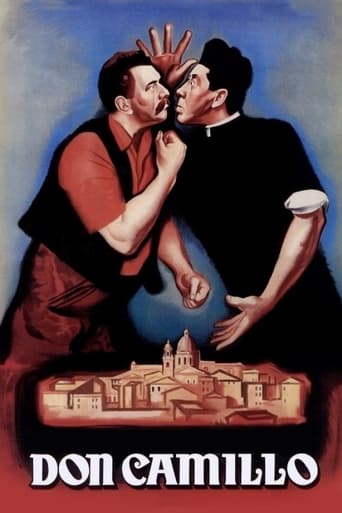

How sad is this?
... View MoreBrilliant and touching
... View MoreThe film may be flawed, but its message is not.
... View MoreThe storyline feels a little thin and moth-eaten in parts but this sequel is plenty of fun.
... View MoreThis is based on a deceptively simple best-selling novel by Giovanni Guareshi which achieved International popularity and this, initial film in an eventual five, replicated the success of the novel though over the years it has lost a little of its lustre. This isn't really the fault of director Julien Duvivier who is responsible for several 'clssic' titles in several genres from Un Carnet de bal through Pepe le Moko, Le Fin du jour, Marie Octobre to name only four; nor is it the fault of Fernandel who was almost certainly the ideal actor to portray the simple priest who thinks nothing of holding two-way conversations with God and is not averse to hand-to- hand brawling with the followers of communist mayor Peppone, the priests' rival for the affection of the small village population and with whom he enjoys a love-hate relationship. Like the novel the film is episodic and more a series of vignettes than a conventional story with a beginning, middle, and end and perhaps this is what takes the edge off what is nevertheless an enjoyable film.
... View MoreI have thoroughly enjoyed all of the films I have seen made by Julien Duvivier and this one is no exception. It concerns the rivalry between the parish priest and the communist mayor of a small village somewhere in Italy. When the priest is annoyed about something, he has a verbal go at Christ on the cross in his church and, would you believe, the voice of God actually replies - or this can be interpreted as his own conscience depending on your beliefs. I did not know that the film had been made in English and learns this on reading these boards. In fact, the logical language for the film is Italian as all the action takes place in Italy so it's a bit strange to hear them all speaking in French or English. The problem is that whilst nearly all the actors in the film are Italian, the priest, Don Camillo, is played by French actor Fernandel. I think there are five or six films in the series but numbers 1 and 2 are purported to be the best. They were issued a year or so ago on DVD in a special edition which has the original Italian version with French subtitles, or the French version with a choice of English or Spanish subtitles. There are also a lot of bonuses on the DVD which teach us a lot about Italy, Gino Cervi and Fernandel. Some of the most delicious moments in the film occur when Don Camillo is complaining to God who answers him and tries to temper his anger. Fernandel had a very expressive face and was ideally suited to this character. Indeed, long after his death, the personnage of Don Camillo has even appeared on adverts for Panzani pasta and with an actor sporting a face almost identical to that of Fernandel. It appears to me that the latter was a much loved actor in France many years ago and I do admit to finding his equine countenance most endearing. The film is therefore a minor masterpiece for all those viewers sensitive to this type of character study.
... View MoreI think this is a very funny movie, Despite the fact it is a white&black film and you really can tell that it is placed on a certain time frame (end of 1940's - early 1950's), the plot is fun and universal. It gives you a glimpse of the life on a small Italian town, where simple things turns into hilarious situations, thanks to the strange relationship of friendship/rivalry between Don Camillo and Mayor Peppone. I was lucky to see the original french version (subtitled, of course) which is always better than hearing a translated version. I think that original voices -even if you do not understand the language- reveal the character's feelings, and give credibility to actor's performances. After the film, you get the impression that life is somewhat easier to cope with...
... View More...Actually, of all those adjectives, `Italian' was the first to leap to mind. I can't believe the IMDb has decided to classify this film under a French name. `Things happen there that could happen nowhere else in the world,' says the narrator. It's easy to believe.The Catholics and the communists are battling for the soul of a small village. It's to be hoped that neither side ever wins. Nor is it likely that either side ever will win. This would spoil everyone's fun.The communist mayor, is, so to speak, the Anglican of the two: someone who will gruffly talk about burning all the capitalists, while letting it be understood that he doesn't really intend his words to be taken literally. The priest (Don Camillo) is hot-headed, as fiercely loyal to the Catholic Church as the mayor is to his party, at once highly intelligent and preternaturally simple minded. He's the kind of Catholic who avoids absurdity by the time-honoured trick of simply not thinking about the doctrines to which he officially subscribes. His `prayers' are impromptu conversations with Jesus, or perhaps simply with the icon of Jesus that hangs on his wall - whichever it is, the film humours his fancy by having Jesus (or the icon) talk back to him. To this day I'm not sure if Jesus (or the icon) is REALLY talking back, or if it's just Don Camillo's imagination. What does it matter? It is, after all, no more than a private eccentricity. It's not as if he talks to or about Jesus in PUBLIC.No one - not atheists, not communists, not Christians, not Norse pagans - could object to the film's big-hearted fantasy, or fail to like either of the two very likeable protagonists. I gather there are several sequels: the one I've seen isn't nearly as good; and the original feels so much like an archetype that I suspect any sequel would be little more than a footnote.
... View More